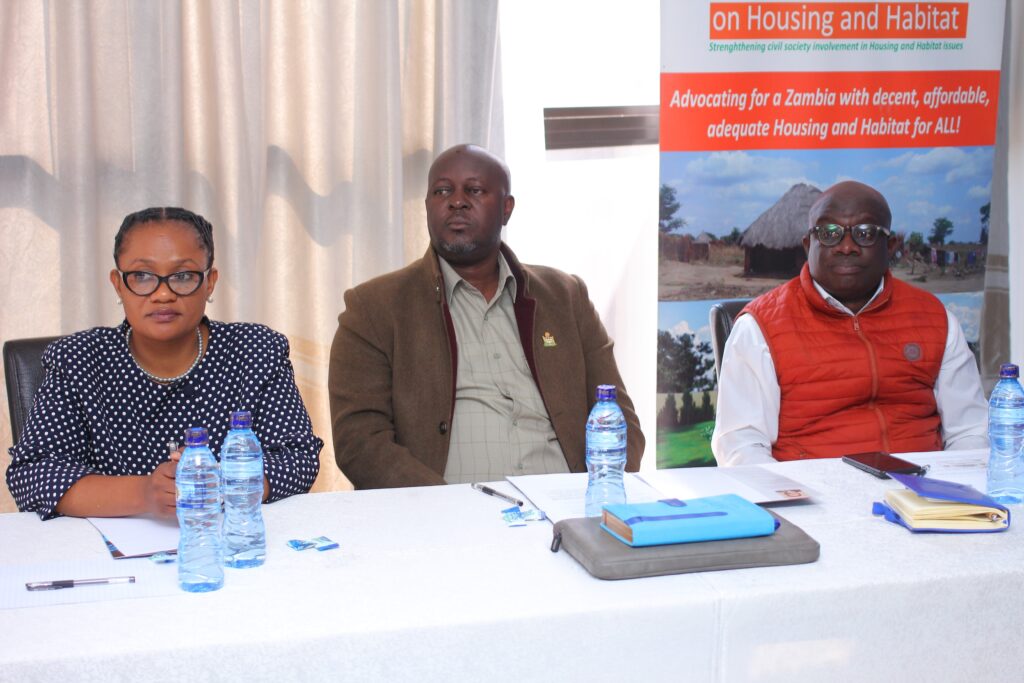Advocating for inclusive development and bringing voices of the voiceless to the table. With a focus on the political Economy of Urban Transformation: Public Service Delivery of Goods and Services to informal settlements in Kitwe, the Friedrich – Ebert – Stiftung Zambia Office with its Just City POA partners organisede the July Kitwe Urban Development Forum.

Informal settlements have been an integral part of urban settlements in Zambia. Historically, they started as temporary homes to the urban poor on casual employment during the colonial era or during the construction of major infrasturture projects. Currently the constitute a permanent feature of urban areas (Sakala, 2016) and characterise the Zambia city scape – the formal and informal urban spaces and systems. Informal settlements are deprived of or lack access to social facilities and amenities.
Majority of citizens in Zambia’s major towns and cities live and work informally. The Government of the Republic of Zambia has for a long time grappled with the problems facing the housing and the informal sector. Initially, ‘squatter’ settlement clearnace was the official government policy to the growing problem of illegal settlement in urban areas. Squatter settlements upgrading was recognised in the Second National Development Plan (SNDP). Proactive mechanisms to manage settlement were intituted – Legal reforms that repealed the town and country Planning Act and the Housing (Statutory and Improvement) Areas Act, developed to form the Urban and Regional Planning Act – 2015 streamlined proactive approach to settlement management in the country, as a measure to improve informal settlement conditions, the state has attempted several measures in regularising informal urban settlements.
With the help of the World Bank, the country conducted some infrastructural upgrading in selected informal communities, with the Bank providing funding and technical support. The Lusaka Squatter Upgrading Project (LSUP) was one of the pioneering upgrading programmes in Africa under the Bank’s initiative which involved the provision of basic housing infrastructure, community services and loans for building materials and land tenure security by facilitating for land regularisation and titling.
UN – Habitat, the Afica, Caribbean and Pacific (ACP) Secretariat and the European Commission Launched the Participatory slum upgrading in 2008. The programme equips countries with tools to improve the living conditions of slum dwellers while preventing the proliferation of new slums.
The PSUP programme is implemented through five strategic and integrated interventions
i). Generating evidence – based knowledge on slums and enhancing the capacity of stakeholders to strengthen policies and develop inclusive city-wide plans.
ii). Improving governance and slum upgrasing institutions by strengthening collaborative linkages across sector and stakeholders groups including slum dwellers, and horizontally incorporating all levels of government.
iii). Promoting participatory urban planning and design strategies that guide safe, resilient, and sustainable urban growth and reneral within a city – wide framework.
iv). Facilitating strategic partnerships between national authorities, local authorities and slum dwellers on the one hand and institutions that are able to tailor appropriate pro – poor financial mechanisms for sustainable slum upgrading.
v). Guiding implementation of community driven and incremental slum upgrading interventions.
Zambia has participated in PSUP I, II and III which resulted in slum upgrading interventions in Kanyama informal settlement; Lusaka’s biggest slum community as well as the development and launch of the Lusaka Slum Upgrading and Prevention Strategy in 2015.
